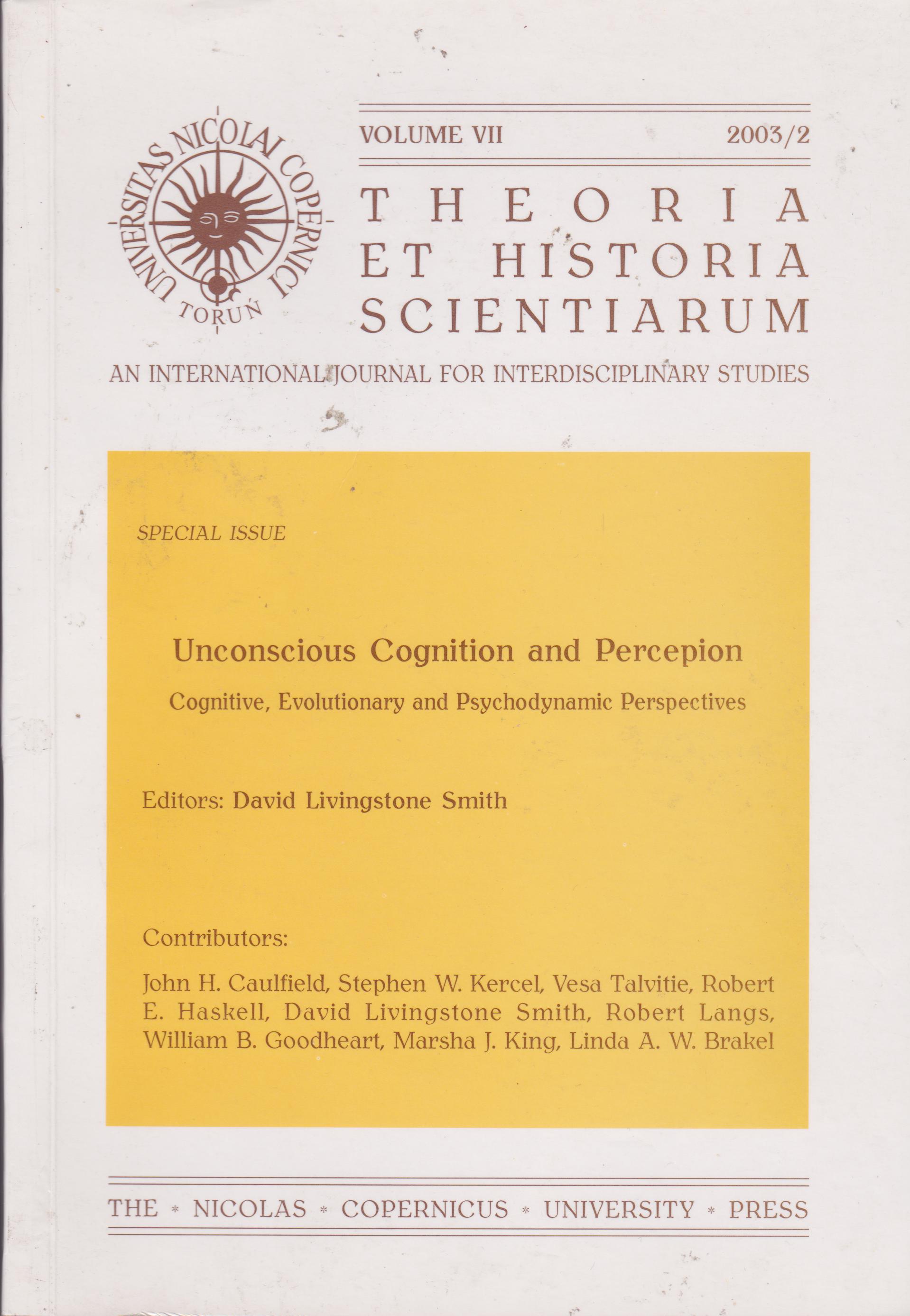The Evolution of The Unconscious Processing Systems of the Human Mind
DOI:
https://doi.org/10.12775/ths.2003.020Keywords
human mind, emotional mind, emotion-processing mind, evolution, unconsciouss processing systemsAbstract
The human mind has evolved in a most peculiar fashion. It’s currently agreed that the mind evolved into specialized units called modules, collections of mental capacities devoted to broad, but basic adaptive functions like perceiving, socializing, navigating in the physical world, and the like (Cosmides & Tooby, 1992, Donald, 1991, Gazzaniga, 1992, Langs, 1996a,b, Mithen, 1996, Plotkin, 1994, Slavin & Kriegman, 1992, Tooby & Comides, 1990). Studies from an adaptive viewpoint (Langs, 1996a,b, 1997, 1998, 1999) indicate that in respect to coping with highly charged environmental challenges or traumas, the mind has evolved two basic systems: The emotional mind, which generates affective responses to stressful events, hormone-based psychological responses that then mobilize bodily and mental resources for coping; and The emotion-processing mind, which copes mentally with emotionally charged events and their consciously and unconsciously experienced meanings.References
Bickerton, D. (1990). Language and Species. Chicago: University of Chicago Press. Corballis, C. (1991) The Lopsided Ape. New York: Oxford University Press.
Cosmides, L. & Tooby, J. (1992). Cognitive adaptations for social exchanges. In: Barków,J., Cosmides, L. and Tooby, J. (Eds). The Adapted Mind. New York: Oxford Univer-sity Press, pp. 163-228.
Donald, M. (1991). Origins of the Modern Mind. Cambridge, MA: Harvard University Press.
Gazzaniga, M. (1992). Nature's Mind. New York: Basic Books.
Langs, R. (1996a) The Evolution of the Emotion Processing Mind. With an Introduction to Mental Darwinism. London: Kamac Books.
—(1996b) Mental Darwinism and the evolution of the emotion-processing mind. American Journal of Psychotherapy, 50: 103-124.
—(1997) Death Anxiety and Clinical Practice. London: Kamac Books.
—(1998) Ground Rules in Psychotherapy and Counseling. London: Kamac Books.
—(1999). Psychotherapy and Science. London: Sage Publications.
Liberman, P. (1991). Uniquely Human. Cambridge, MA: Harvard University Press. Maidenbaum, A. (1998) Dreams and other aspects of Jungian psychology. In R. Langs (ed.), Current Theories of Psychoanalysis. Madison, CT: IntemationalUniversities Press: 227-254.
Mithen, S. (1996) The Prehistory of the Mind. London: Thames and Hudson.
Plotkin, H. (1994) Darwin Machines and the Nature of Knowledge. Cambridge, MA: Harvard University Press.
Slavin, M. & Kriegman, D. (1992). The Adaptive Design of the Mind. New York: Guilford Press.
Tooby, J. and Cosmides, L. (1990b) The past explains the present. Ethology and Sociobiology, 11: 375-424.
Downloads
Published
How to Cite
Issue
Section
Stats
Number of views and downloads: 357
Number of citations: 0



